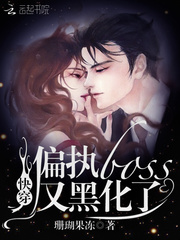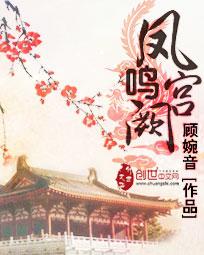LETTER 519
您可以在百度里搜索“The Works of Charles and Mary Lamb — Volume 6 艾草文学(www.321553.xyz)”查找最新章节!
LETTER 519
CHARLES LAMB TO SARAH HAZLITT
[Enfield, Saturday, May 24th, 1830.]
Mary's love? Yes. Mary Lamb quite well.
Dear Sarah,—I found my way to Northaw on Thursday and a very good woman behind a counter, who says also that you are a very good lady but that the woman who was with you was naught. These things may be so or not. I did not accept her offered glass of wine (home-made, I take it) but craved a cup of ale, with which I seasoned a slice of cold Lamb from a sandwich box, which I ate in her back parlour, and proceeded for Berkhampstead, &c.; lost myself over a heath, and had a day's pleasure. I wish you could walk as I do, and as you used to do. I am sorry to find you are so poorly; and, now I have found my way, I wish you back at Goody Tomlinson's. What a pretty village 'tis! I should have come sooner, but was waiting a summons to Bury. Well, it came, and I found the good parson's lady (he was from home) exceedingly hospitable.
Poor Emma, the first moment we were alone, took me into a corner, and said, "Now, pray, don't drink; do check yourself after dinner, for my sake, and when we get home to Enfield, you shall drink as much as ever you please, and I won't say a word about it." How I behaved, you may guess, when I tell you that Mrs. Williams and I have written acrostics on each other, and she hoped that she should have "no reason to regret Miss Isola's recovery, by its depriving her of our begun correspondence." Emma stayed a month with us, and has gone back (in tolerable health) to her long home, for she comes not again for a twelvemonth. I amused Mrs. Williams with an occurrence on our road to Enfield. We travelled with one of those troublesome fellow-passengers in a stage-coach, that is called a well-informed man. For twenty miles we discoursed about the properties of steam, probabilities of carriages by ditto, till all my science, and more than all, was exhausted, and I was thinking of escaping my torment by getting up on the outside, when, getting into Bishops Stortford, my gentleman, spying some farming land, put an unlucky question to me: "What sort of a crop of turnips I thought we should have this year?" Emma's eyes turned to me, to know what in the world I could have to say; and she burst into a violent fit of laughter, maugre her pale, serious cheeks, when, with the greatest gravity, I replied, that "it depended, I believed, upon boiled legs of mutton." This clench'd our conversation; and my Gentleman, with a face half wise, half in scorn, troubled us with no more conversation, scientific or philosophical, for the remainder of the journey. Ayrton was here yesterday, and as learned to the full as my fellow-traveller. What a pity that he will spoil a wit and a devilish pleasant fellow (as he is) by wisdom! He talk'd on Music; and by having read Hawkins and Burney recently I was enabled to talk of Names, and show more knowledge than he had suspected I possessed; and in the end he begg'd me to shape my thoughts upon paper, which I did after he was gone, and sent him.
FREE THOUGHTS ON SOME EMINENT COMPOSERS
Some cry up Haydn, some Mozart,
Just as the whim bites. For my part,
I do not care a farthing candle
For either of them, or for Handel.
Cannot a man live free and easy,
Without admiring Pergolesi!
Or thro' the world with comfort go
That never heard of Doctor Blow!
So help me God, I hardly have;
And yet I eat, and drink, and shave,
Like other people, (if you watch it,)
And know no more of stave and crotchet
Than did the un-Spaniardised Peruvians;
Or those old ante-queer-Diluvians
That lived in the unwash'd world with Jubal,
Before that dirty Blacksmith Tubal,
By stroke on anvil, or by summ'at,
Found out, to his great surprise, the gamut.
I care no more for Cimerosa
Than he did for Salvator Rosa,
Being no Painter; and bad luck
Be mine, if I can bear that Gluck!
Old Tycho Brahe and modern Herschel
Had something in them; but who's Purcel?
The devil, with his foot so cloven,
For aught I care, may take Beethoven;
And, if the bargain does not suit,
I'll throw him Weber in to boot!
There's not the splitting of a splinter
To chuse 'twixt him last named, and Winter.
Of Doctor Pepusch old queen Dido
Knew just as much, God knows, as I do.
I would not go four miles to visit
Sebastian Bach-or Batch-which is it?
No more I would for Bononcini.
As for Novello and Rossini,
I shall not say a word about [to grieve] 'em,
Because they're living. So I leave 'em.
Martin Burney is as odd as ever. We had a dispute about the word "heir," which I contended was pronounced like "air;" he said that might be in common parlance; or that we might so use it, speaking of the "Heir-at-Law," a comedy; but that in the Law Courts it was necessary to give it a full aspiration, and to say Hayer; he thought it might even vitiate a cause, if a Counsel pronounced it otherwise. In conclusion, he "would consult Serjeant Wilde;" who gave it against him. Sometimes he falleth into the water, sometimes into the fire. He came down here, and insisted on reading Virgil's "Eneid" all through with me (which he did,) because a Counsel must know Latin. Another time he read out all the Gospel of St. John, because Biblical "ations are very emphatic in a Court of Justice. A third time, he would carve a fowl, which he did very ill-favoredly, because "we did not know how indispensable it was for a Barrister to do all those sort of things well. Those little things were of more consequence than we supposed." So he goes on, harassing about the way to prosperity, and losing it. With a long head, but somewhat a wrong one—harum-scarum. Why does not his guardian angel look to him? He deserves one—: may be, he has tired him out.
I am——with this long scrawl, but I thought in your exile, you might like a letter. Commend me to all the wonders in Derbyshire, and tell the devil I humbly kiss—my hand to him. Yours ever,
C. LAMB.
["Free Thoughts." The version in Ayrton's album differs a little from this, the principal difference being in line 13, "primitive" for "un-Spaniardised." Lamb's story of the origin of the verses is not necessarily correct. I fancy that he had written them for Novello before he produced them in reply to Ayrton's challenge. When sending the poem to Ayrton in a letter at this time, not available for this edition (written apparently just after Novello had paid the visit, referred to above), Lamb wrote that it was written to gratify Novello.
Mary Lamb (or Charles Lamb, personating her) appended the following postscript to the verses in Novello's album:—
The reason why my brother's so severe,
Vincentio is—my brother has no ear:
And Caradori her mellifluous throat
Might stretch in vain to make him learn a note.
Of common tunes he knows not anything,
Nor "Rule, Britannia" from "God save the King."
He rail at Handel! He the gamut quiz!
I'd lay my life he knows not what it is.
His spite at music is a pretty whim—
He loves not it, because it loves not him.
M. LAMB.
"Serjeant Wilde"-Thomas Wilde (1782-1855), afterwards Lord Truro, a friend of Lamb's, who is said to have helped him with squibs in the Newark election in 1829, when Martin Burney was among his supporters (see Vol. V. of my large edition, page 341).
Here had I permission, I would print Lamb's letter to Ayrton, given in the Boston Bibliophile edition, incorporating the same poem.] The Works of Charles and Mary Lamb — Volume 6
